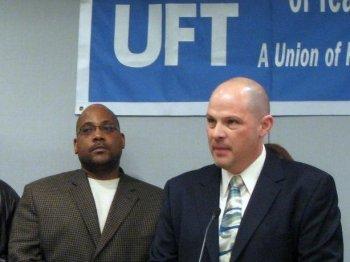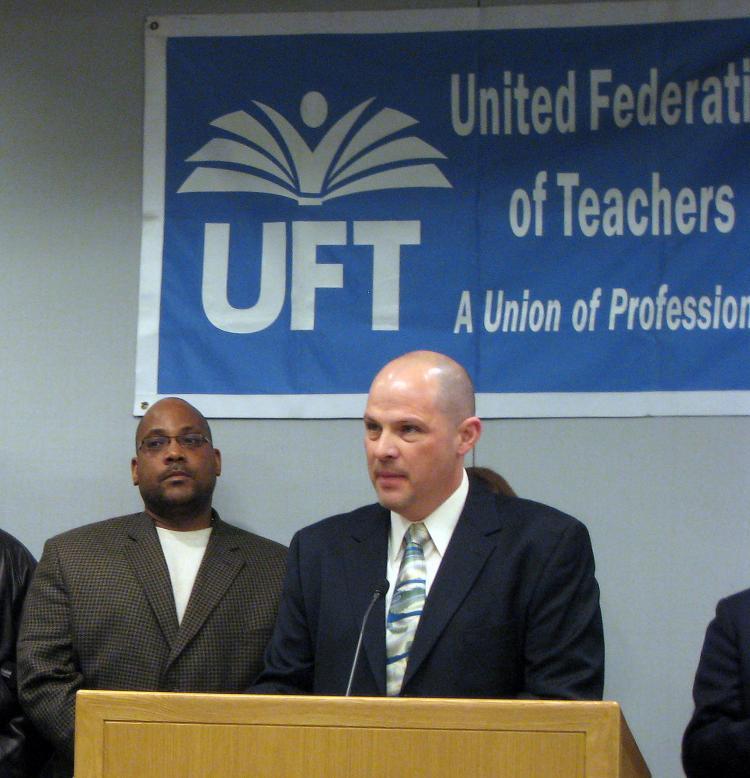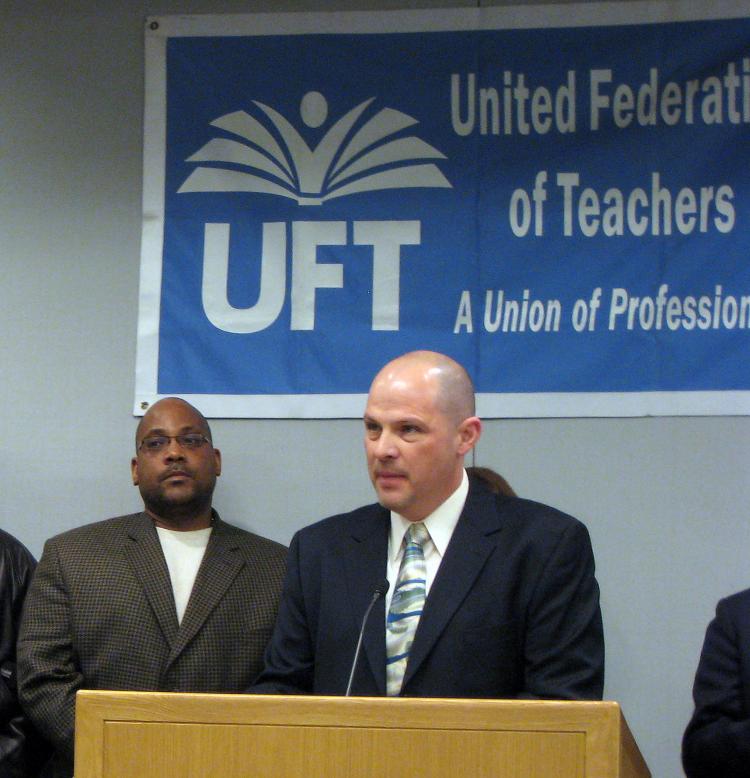NEW YORK—The United Federation of Teachers released a report on Sunday stating that New York City charter schools are not serving the neediest students, and recommended changes in the state charter school law.
The recommendations focus on making charter schools more fair, accountable, and transparent. They include mandating charter schools to enroll at least the district-wide average number of needy students including English language learners and special need students, allowing a neutral third party to oversee the lottery process, banning for-profit companies from owning or running charter schools, adjusting charter school staff’s salaries to public sector levels, and making charter schools’ financial and operational data available and auditable by city and state officials.
The original intent of the charter school law passed 10 years ago was fairness and access for all students, said Mr. Michael Mulgrew, president of UFT, but says it is not being fulfilled.
“New York’s charter school experiment has led to some promising innovations, but as a group New York City charter schools have become a separate and unequal branch of public education,” Mulgrew said.
According to the report, charter schools in New York City have significantly less students eligible for free lunch than public schools. Similarly, charter schools enroll less than 4 percent of English language learners, while public schools enroll a number almost three times more. In North-Central Brooklyn, charter schools enroll 1.3 percent of English language learners, compared with 11.2 percent in public schools. As for special education students, charter schools are enrolling 9.5 percent, while public schools enroll 16.4 percent.
There is also a racial disparity between charter and public schools. “Despite their concentrations in highly diverse neighborhoods, charters as a group admits substantially fewer Hispanic and/or immigrant students,” according to the report.
In addition, corporations running charter schools are making a lot of money, which the lawmakers intended to use for the students.
“When this law was passed 10 years ago, it was clear that there was never an intent for corporations to be making profit and putting that into their pocket,” Mulgrew said. “I do not believe those who voted for the charter school law 10 years ago ever intended that people running three or four charter schools would be making three, four, or five hundred thousand dollars.”
“We must fulfill the promise that was intended 10 years ago. We need to have fairness for all students. We need all parents to have true choice in their neighborhood, and we need to ensure that we are making all schools accountable in the same level, and we also need to ensure, now more than ever, that the dollars that this state intends for public education are going into the classroom.”



